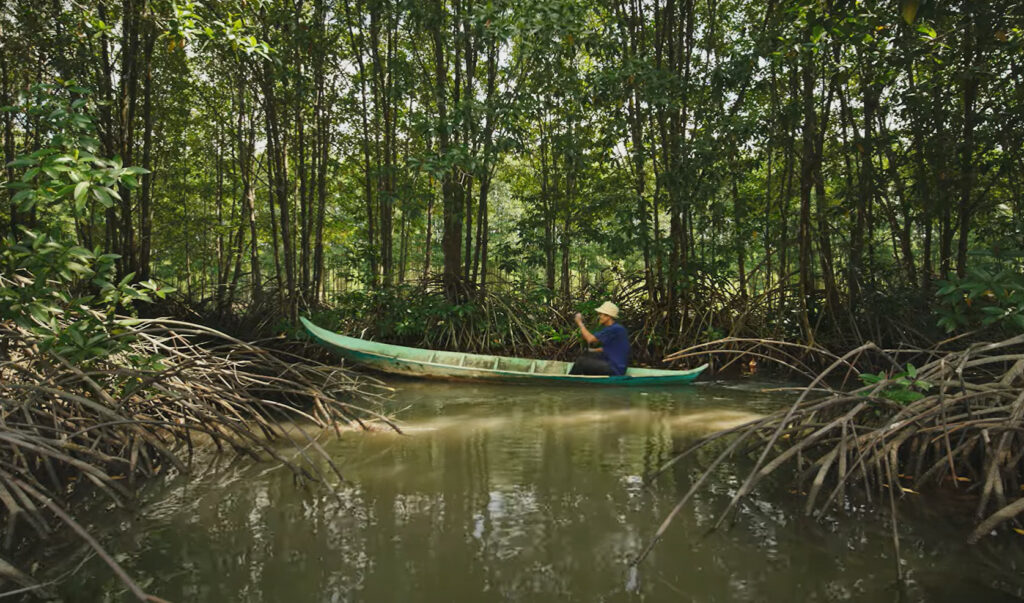MoU With Rubicon To Accelerate Availability Of Four-Star BAP Shrimp
Approximately 285 shrimp farms in India and Thailand will be encouraged to attain Best Aquaculture Practices (BAP) certification as part of a memorandum of understanding (MoU) signed by the Global Aquaculture Alliance and Rubicon Resources in early February.
The MoU is intended to accelerate and grow the availability of four-star BAP shrimp. Four star denotes that a product originates from a BAP-certified processing plant, farm, hatchery and feed mill.
With guidance, training and support from GAA and Rubicon, 100 Indian farms and 185 Thai farms will enroll in GAA’s iBAP improvement program to make the enhancements necessary to apply for BAP certification. The Indian farms will apply for BAP certification as two groups of 50 farms, while the Thai farms will apply for BAP certification as four groups of 30 farms, with the remaining 65 through IOMs (integrated operating module). The MoU also includes one hatchery and one feed mill in India.
Upon enrolling in iBAP, the farms will have 12 months to attain BAP certification. In Thailand, the aim is for all 250 farms in the watershed that are being targeted will effectively form an active zonal management AIP (aquaculture improvement project) when completed.
“I believe the iBAP program is the perfect solution for certifying new farms and formerly active farms in Thailand that ceased shrimp production due to the EMS crisis. Farms in India are typically smaller, and those farms will benefit from the assistance provided by the program, especially farms that are part of a cooperative,” said Gregg Small, Rubicon’s VP of technical services and sustainability. “The structure of the iBAP program allows for a longer term of improvement while rewarding farmers for using best practices. It also provides for oversight and training of the smallest family farms at a reasonable cost. I expect this joint GAA-Rubicon initiative will attract more farms than our initial target for 2016. It will offer certification to the largest segment of farms that, because of their small size, have not had access to major international markets.”
“In what has been a very busy few weeks for GAA, we are very excited to announce the combined project with Rubicon. Rubicon’s choice of using iBAP to organize and ready its farms, prior to full BAP certification, is a perfect example of how the industry is adapting to the bigger, better and more broad based solutions for literally hundreds of facilities,” said Peter Redmond, BAP’s VP of market development. “We applaud this effort and look forward to demonstrating true change on the water through iBAP and BAP certification.”
Facilities that enroll in iBAP agree to a step-by-step, deadline-driven plan. They can apply directly or through organizations acting on their behalf, such as a processor, supplier or buyer.
Since its launch in early 2015, 82 facilities worldwide have enrolled in iBAP. Of the 82 facilities, 35 have applied for BAP certification and 10 are BAP certified. Currently, there are 37 facilities enrolled in iBAP, representing nine countries (Brazil, China, Ecuador, Honduras, India, Mexico, Panama, Peru and Thailand) and three species (shrimp, tilapia and trout) as well as aquaculture feed.
About GAA
The Global Aquaculture Alliance is an international, nonprofit trade association dedicated to advancing environmentally and socially responsible aquaculture. Through the development of its Best Aquaculture Practices certification standards, GAA has become the leading standards-setting organization for aquaculture seafood.
About BAP
A division of the Global Aquaculture Alliance, Best Aquaculture Practices is an international certification program based on achievable, science-based and continuously improved performance standards for the entire aquaculture supply chain — farms, hatcheries, processing plants and feed mills — that assure healthful foods produced through environmentally and socially responsible means. BAP certification is based on independent audits that evaluate compliance with the BAP standards developed by the Global Aquaculture Alliance.




